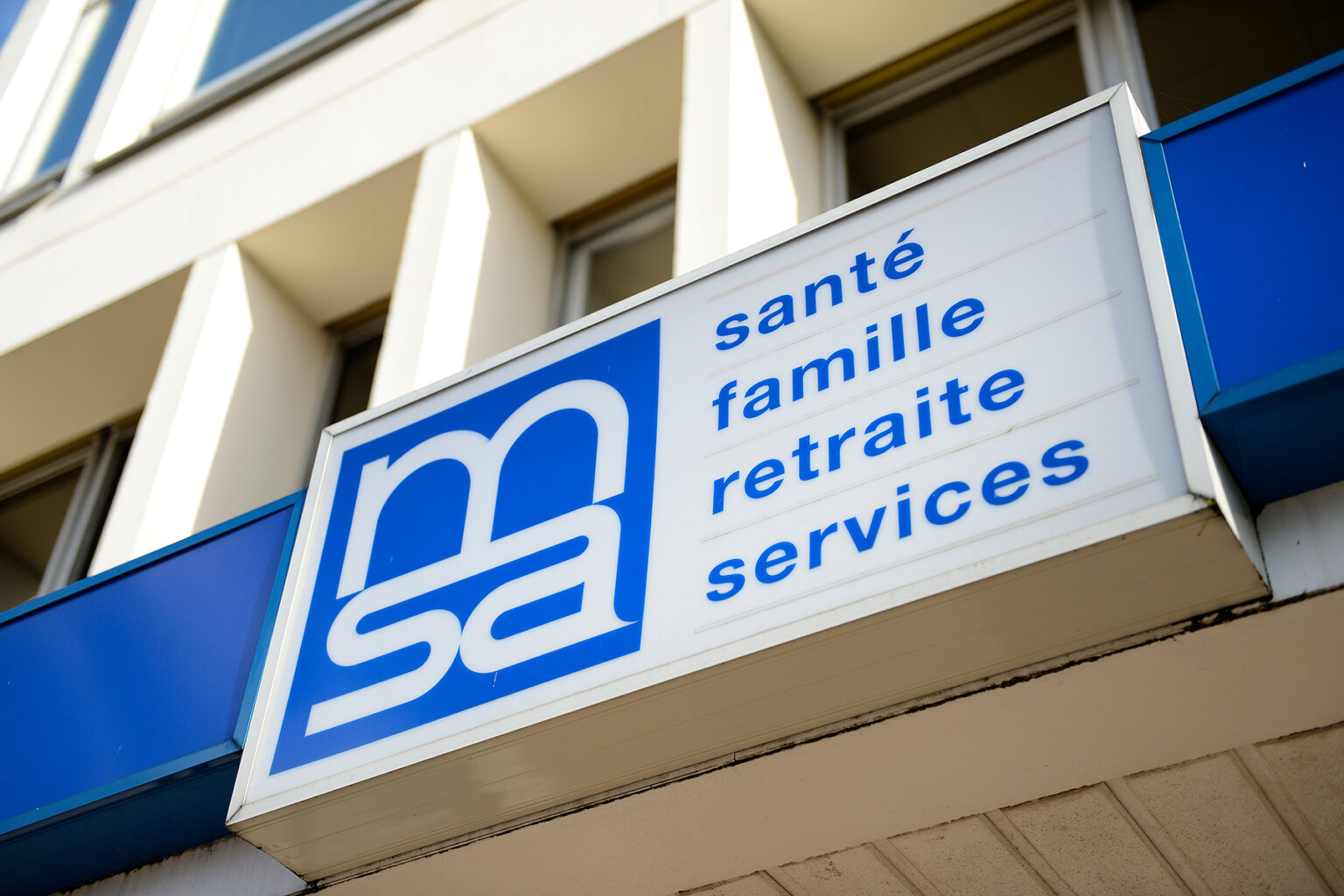Foreigners living and working in France must typically register and pay into French social security in exchange for certain government benefits, including healthcare. The French social security system, which the French familiarly call la Sécu, has different categories or régimes.
- An overview of the French social security system
- Who pays French social security and what benefits apply?
- Reciprocal agreements
- The French social security scheme
- Sickness, maternity, invalidity, and death
- Accidents and occupational disease benefits in France
- Family benefits in France
- Unemployment benefit in France
- Old age pension in France
- Social security debt in France
- Useful resources
Groupama
Find health insurance that’s tailored to you. Groupama provide health insurance for any customer, covering treatments and consultations all over France. They also offer reimbursement for alternative medicine. Visit Groupama online to get a health insurance quote within three minutes.
An overview of the French social security system
There are five main elements to the French social security system:
- the general scheme (régime général), which covers most employees and students;
- the self-employed scheme (régime autonome) and sickness insurance;
- unemployment and supplementary pension schemes;
- agricultural schemes (régime agricole);
- special employee schemes (régimes spéciaux), for civil servants and military personnel, for example.
Who pays French social security and what benefits apply?
Employees and social security in France
Most employees receive coverage for sickness, maternity, paternity, and family benefits under the compulsory general scheme. Financing for this comes mainly from contributions and tax deductions from earnings. Employees and employers share the burden for these costs and a network of government organizations manages them. The general scheme basic pension also receives supplements from other pension schemes. All wage earners also receive coverage from an unemployment scheme that employers and representatives of employees manage. If you are an employee, your employer also arranges for you to join the social security, unemployment, and supplementary pension schemes.
Self-employed workers and social security in France
Freelance workers receive coverage from a compulsory basic and supplementary scheme for health, family allowances, and pensions. However, this is not the case for unemployment or sick pay; you need to take out separate cover for that.
Most self-employed social security contributions are tax-deductible.
If you are a freelancer, you must register for social security with the Union de Recouvrement des Cotisations de Sécurité Sociale et d’Allocations Familiales or URSSAF. They automatically enroll you with the various funds that in turn send bills for your contributions.
Health insurance is provided by specialized insurers through the Regime Social des Independents (RSI).
You can contribute to retirement and invalidity funds through the Caisse National d’Assurance Vieillesse des Professions Libérales or CNAVPL.
Writers and artists should contact the Association pour la Gestion de la Sécurité Sociale des Auteurs (Agessa) or the Maison des Artists.
Foreign students and social security in France
If you are a student under 28 on 1 October of any year and come from a country in the European Union (EU) or Switzerland, you can use your European Health Insurance Card to register with your local Caisse Primaire d’Assurance Maladie (CPAM) and be reimbursed for healthcare expenses.
For students under 28 (1 October rule) from outside the EU, you must register with the student social security scheme at your university or through a fund such as La Mutuelle des Etudients (LMDE).
Anyone over 28 on 1 October of any year, whatever your country of origin, if you’re coming to study in France for more than three months, you must register with the general social security scheme through your local CPAM. You can find your local caisse here.
Reciprocal agreements
Some countries have reciprocal social security agreements with France. Check with the authorities in your home country to see if what applies.
The French social security scheme
There are several main branches:
- sickness, maternity, paternity, disability, and death
- accidents and occupational diseases
- family allowances
- unemployment benefits
- old-age pension
You may also be subject to pay toward social security debt, in the form of two social security surcharges.
Sickness, maternity, invalidity, and death
In January 2015, employees paid 0.75% of total monthly earnings and the employer paid 13.10%.
To claim benefits, you must pay a certain amount in contributions or worked a specific amount of hours. So, you must have at least worked for:
- 60+ hours/paid contributions equal to 60 times the minimum hourly wage over a period of one month;
- 120+ hours/contributions equal to 120 times hourly minimum wage over three months; or
- 400+ hours/contributions equal to 400 times hourly minimum wage over 12 months.
You can get supplementary health insurance through your employer or through a mutual or provident fund or insurance company. It may be possible to get a grant to contribute to the cost of a mutual or private insurance plan. If you are on a low income, you can get help with costs through the Universal Health Insurance Coverage (CMU and CMU-C).
For even more information, see the CMU website.
Health and sickness benefits in France
Under the health insurance system, you and your dependents can claim healthcare reimbursements and sick pay.
Under the French healthcare system, most adults pay a proportion of the cost of medical treatment and medications, as well as a flat rate charge for consultations with a doctor and certain tests, and reimbursements of a percentage of the cost of prescriptions; in fact, around 75 to 80% of in-patient costs are reimbursable.
To claim sickness benefits, get a sick note from your doctor; you can then claim cash benefits from the fourth day of absence from work. The daily amount is equivalent to 50% of the daily wage of the last three months. There are upper limits, however, depending on your circumstances.
You can get daily benefit for longer-term illness for a maximum of three years. You can also claim for compassionate leave to care for a seriously ill family member.
For even more information, see the Caisse Nationale d’Assurances Maladie des Travailleurs Salarié Ameli website.
Maternity and paternity benefits in France
This covers:
- antenatal treatment during pregnancy and birth,
- cash benefits for the mother during maternity leave before and after the birth,
- father’s paternity leave,
- adoption leave shared between both parents.
Notify the local health insurance fund as soon as possible after confirming the pregnancy.
You are exempt from co-payments and flat-rate charges for all pregnancy-related medical costs from the sixth month of pregnancy and 12th day after birth. Also, you can get maternity benefits as soon as you stop working.
You must take a minimum of eight weeks maternity leave but can take up to 16 weeks. Paternity leave is 11 consecutive days. Adoption is 10 weeks for a single child. To qualify you must have been registered with the social security system for at least 10 months before the expected date of delivery and paid/worked the requisite amount of hours/contributions.
Daily maternity, paternity, or adoption benefit is equal to the daily wage of the three months prior to prenatal leave. This is up to a quarterly ceiling of €9,510 in 2015.
Invalidity benefits in France
This covers loss of earnings due to non-work-related illness or accident. You may claimed it if you cannot earn at least one-third of your wage earned before the disability.
You must have been registered with the health scheme for at least 12 months prior to stopping work through disability, and worked for at least 800 hours or paid contributions on wages equal to 2,030 times the minimum hourly wage.
How much disability pension you get depends on the level of inability to work, however; the maximum amount of the lowest level of pension is 30% of the social security ceiling (€951).
Death benefits in France
Dependents of an insured person may be paid a lump sum of €3,400 (in January 2015) in the event of a death. The relative must have been employed and making eligible contributions, doing the equivalent of paid work, a disability pensioner or getting industrial injury benefits higher than 66% during the three months prior to the death.
Accidents and occupational disease benefits in France
This provides compensation for work-related disablement or illness. Contributions are paid by employers; amounts vary according to the specific risk in individual workplaces, however.
You don’t have to be registered with the social security system, nor does it matter how many contributions have been made.
Accidents must be reported to the employer within 24 hours who, in turn, must inform the local health insurance fund within 48 hours. A special form exempts you from up-front medical costs and claimants may be paid a full day’s wage for the day of the accident and 60% of the daily wage thereafter up to a maximum of €190.35 per day.
Family benefits in France
Anyone living in France with dependent children – legitimate, illegitimate, fostered or adopted – is entitled to family benefits for their children up to the age of 20, if not working/earning under €893.25 per month (or age 21 for housing and family income supplement).
Family benefits are calculated as a percentage of the monthly family benefit base (BMAF), which was in April 2015 €406.21. As of July 2015, these are means tested.
Benefits include:
- child benefit, paid from the second dependent child;
- a flat-rate allowance for families with three or more children whose benefit is reduced when they reach 20;
- family income supplement for families with three or more children on net household incomes of less than €45,941.
There are also means-tested grants to help pay for childcare. Non-means-tested grants are available for children with disabilities as well as for family housing allowances.
For amounts of all family benefit rates from 1 April 2015 to 31 March 2016, see this chart from Le Cleiss.
For even more information about family benefits, see Allocations Familiales (CAF).
Unemployment benefit in France
In January 2015, employees paid 2.4% of monthly salary to protect against unemployment. Employers contributed 4% of salaries up to a ceiling of €12,680 month.
URSSAF collects all contributions. For supplementary pensions, employees and employers contribute higher percentages within limits, see this Le Cleiss chart.
Who can claim?
To claim unemployment benefit in France you must have been registered with the scheme for at least 122 days in the last 28 months (last 36 months if you are over 50) and be below the minimum retirement age. You must have had your contract terminated by the employer, come to the end of a fixed contract, resigned for a valid reason, or mutually agreed to leave your employment.
You must register with the Pôle emploi (jobseekers service), actively seek work, as well as accept reasonable job offers.
How much?
Unemployment benefit pays as a daily unemployment allowance; how much you get depends on contributions and salary level over the previous 12 months up to a limit of €12,680 month. For example, 57% of daily gross salary for a salary of between €2,149 and €12,680.
It is possible to earn a salary in addition to receiving unemployment benefits, so long as the total income from benefits and salary do not exceed the average gross salary earned before registering as a job seeker.
Old age pension in France
The legal minimum retirement age in France is 62 for those born after 1 January 1955 but the normal retirement age is between 65 and 67.
Employees pay 6.85% of monthly income and employers pay 8.5% up on earnings up to a ceiling of €3,170 per month. Without an upper limit, employees pay 0.3% on total monthly salary and employers pay 1.8%.
How much pension you get depends on the 25 best earning years on which contributions have been made, the payment rate, and total period of insurance. Depending on the job, it may be possible to take early retirement without a loss of pension.
There are supplementary pension schemes as well, which are administered by ARRCO (Association for Employees’ Supplementary Schemes) and AGIRC (General Association of Retirement Institutions for Executives) covering only managerial and executive staff. How much pension you get is points-based, whereby the yearly contributions are converted into points, added up for the total period of insurance and multiplied by the value of the point at the time the pension is calculated. For even more information, see the AGRIC and ARRCO website.
Social security debt in France
If you are resident and paying tax in France you also have to pay two social security surcharges called the Contribution Sociale Généralisée or CSG, and the Contribution pour le Remboursement de la Dette Social (CRDS). These pay on total income.
CSG is 7.5% on earned income and 6.2% on replacement income; CRDS is 0.5% of earnings.
If you are not paying tax in France you don’t have to pay contributions to either, but you must make contributions to employee’s health insurance at a rate of 5.5% on total earnings.
Useful resources
- www.service-public.fr – general information on health and social security from the French government
- Securite-sociale – public portal for social security in France
- I’Assuarance Maladie (Ameli) – information on healthcare, accidents at work, and issues social security numbers
- Le Cleiss – social security
- URSSAF – social security
- CAF Caisse D’Allocations Familiales – family benefits
- Regime Social des Independents (RSI) – health cover for self-employed
- Caisse National d’Assurance Vieillesse des Professions Libérales CNAVPL – retirement and invalidity cover for self-employed
- Association pour la Gestion de la Sécurité Sociale des Auteurs (Agessa) or the Maison des Artists –writers and artists social security




